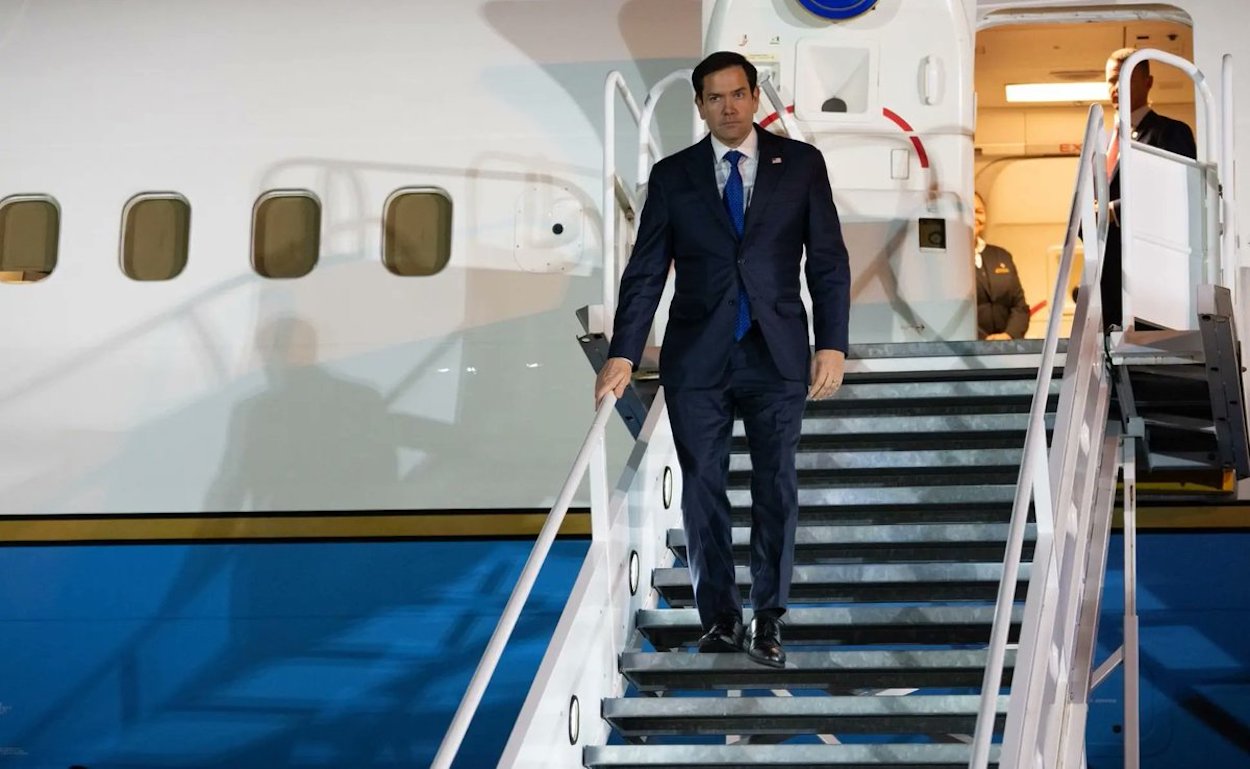
The Trump administration has quietly expanded the health criteria that U.S. consular officers may use to deny visas, adding common chronic conditions like obesity, cancer, and diabetes to the list of potential grounds for refusal. This could translate to even temporary travelers being denied entry at US ports of entry.
New U.S. Visa Guidance Allows Denials For Obesity, Cancer, And Diabetes
Secretary of State Marco Rubio recently sent a cable to U.S. embassies and consulates outlining new instructions on how to assess visa applicants’ health and financial risk, according to a copy obtained and verified by The Washington Post.
The directive broadens medical screening beyond the long-standing focus on contagious diseases. Visa officers are now told to consider whether applicants have chronic health conditions that could lead to high long-term medical costs and potentially make them a “public charge” in the United States.
According to the reporting, the cable instructs consular officers to factor in conditions such as cardiovascular disease, respiratory disease, cancers, diabetes, metabolic disorders, neurological disease, and certain mental health conditions when deciding whether an applicant might impose significant costs on U.S. health systems. Obesity is specifically highlighted as a risk factor, with references to complications like sleep apnea, high blood pressure, and depression.
A State Department line in the cable, as quoted in secondary summaries, reads in substance: officers “must consider an applicant’s health,” and some chronic medical conditions can require hundreds of thousands of dollars of care over a person’s lifetime.
What Has Changed
Under existing immigration law, consular officers have long had authority to deny visas on “public charge” grounds, meaning they believe an applicant is likely to become primarily dependent on government support. Historically, that standard was applied more narrowly, mostly tied to evidence that someone would require institutional care at government expense or rely heavily on cash welfare.
The new guidance, as described, does not change the statute but expands how it is interpreted in day-to-day consular work:
- Broader list of conditions – Chronic and common illnesses such as obesity, cancer, diabetes, and heart disease are now explicitly cited as factors that can be weighed in public-charge determinations.
- Additional non-medical factors – Officers are also instructed to consider retirement age, number of dependents, and whether any dependents have “special needs” or disabilities, when assessing the potential long-term cost of an applicant and their family.
- Applies to many visa categories – The guidance covers both temporary (non-immigrant) visas and immigrant visas for those seeking permanent residence based on work or family. Certain humanitarian categories, like refugees, are reportedly exempt, though some of those programs have been reduced or ended under the current administration.
The cable was described as having been drafted by political leadership at the State Department and issued outside the usual internal review process that would typically involve more input from career staff.
How The Administration Is Framing It
The White House has defended the move as a stricter enforcement of existing law. A spokesperson said that for about a century, State Department policy has included authority to deny visas to applicants who would impose a financial burden on U.S. taxpayers, particularly those expected to seek publicly funded health care. The administration’s position is that it is now “fully enforcing” that authority and “putting Americans first.”
The guidance effectively links the presence of common chronic diseases to potential future public costs. Globally, about 16% of adults were classified as obese and 14% had diabetes in 2022, according to World Health Organization data cited in coverage of the memo, suggesting many applicants could fall into categories now flagged for extra scrutiny.
Concerns From Lawyers And Diplomats
Immigration attorneys and some current or former U.S. consular officials have raised several concerns:
- They argue the directive gives consular officers unusually broad discretion to deny visas based on very common conditions that were not previously treated as stand-alone disqualifiers.
- Some see the policy as going beyond medical criteria used by the Centers for Disease Control and Prevention for immigrant medical exams, which focus on specific infectious diseases, substance abuse, and vaccination status.
BostonGlobe.com - The cable appears to ask visa officers not only to identify conditions but to estimate the lifetime cost of an applicant’s care and decide whether the applicant has sufficient financial resources to cover that care without public support.
- Some see dangerous parallels in making such broad determinations
A senior State Department official and a diplomat familiar with the guidance, both speaking anonymously in accounts summarized from the Post story, described the directive as part of a broader push by leadership to find additional grounds to deny or slow visa applications.
What It Could Mean For Travelers
For now, there is no new public application form or separate health questionnaire tied directly to obesity or other chronic conditions. Applicants still undergo existing medical examinations where required and must disclose certain health information as part of their visa process.
The practical impact of the cable will likely depend on how individual consular posts implement it, since officers already have considerable discretion in determining whether someone could become a public charge. The new guidance gives them a more explicit basis to factor in chronic health issues, age, dependents, and perceived long-term costs in making that judgment and that can impact even temporary visitors traveling on visa waivers via US airports and other ports of entry.
For prospective visitors, workers, and immigrants—particularly older applicants or those with chronic health conditions—the story suggests a higher level of scrutiny and a greater chance that health and financial documentation could play a decisive role in whether a visa is granted.
CONCLUSION
The State Department is introducing a significant shift in how U.S. visa officers are being instructed to evaluate applicants with chronic health conditions. While the public-charge statute itself is not new, the State Department’s expanded interpretation now explicitly connects common conditions like obesity, cancer, and diabetes to potential visa denials. The ultimate impact will depend on how consular officers apply the guidance on the ground, but travelers and prospective immigrants with ongoing medical issues may face increased scrutiny and additional documentation requirements under the new policy.
image: State Department




This is a new take on the idea of a “genetic visa”. The irony of it is that Trump would not qualify if he were in need of a US visa under such a bizarre standard.
He would qualify as he can afford independent medical care and won’t need a subsidized ACA plan. Well, assuming that he actually has at least a little bit of the money he claims he has.
What Trump doesn’t get is that it’s unreasonable to expect a new immigrant to afford market-rate health insurance unless you solely bring in immigrants with jobs that provide or subsidize coverage (h1b) or people with money (gold card, etc).
My wife’s best friend, who is a naturalized citizen, just sponsored and brought her two elderly parents over from China on green cards to help her out with childcare. These parents are getting $0/monthly subsidized healthcare plans while the rest of us have to pay thousands of dollars. This is what legal immigration looks like. It’s unsustainable.
How many people in the US fit that description? From an actual credible source, I mean.
As a physician, I saw many patients on Medicaid who were the parents of wealthy foreign born physicians. People bring their foreign parents into the country and stick them on Medicaid. Somehow they also get free Medicare too, perhaps by visiting in previous years. Some live in their native country and come here for free surgery. The head of our county subsidized housing told me that 75% of recipients are foreign.
May other countries implement an identical policy specific to Americans only.
Which ones?
Canada seems to be a country that can deny visas based on health conditions
This is call false equivalence. The standards of freedom should be held against own existing/past standards. Otherwise one can say that let’s have Sharia law because many other countries have it.
Perhaps other countries will follow suit (like with the ESTA)….and then travel abroad will be very difficult for many US citizens….and I wonder how they want to qualify CBP personnel to determine medical risk? Employ only physicians in the future? And what about medical travel insurance?
Australia already does this. We want immigrants who contribute, rather than taking from the public purse the moment they arrive.
What about if you fellate Bill Clinton? Does that get you entry? Asking for my friend David Dennison